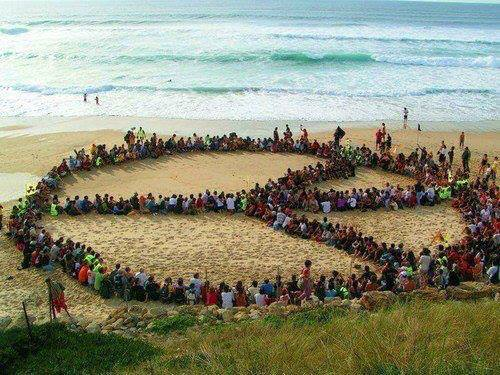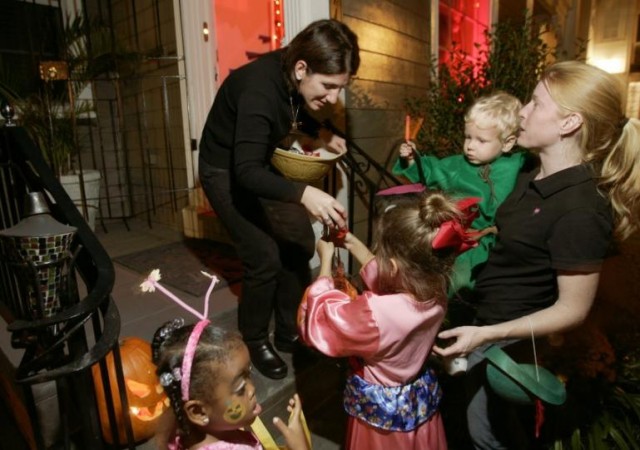
It was dark. We were hungry. Mom decided we would eat without my dad.
I was around 6 years old that Christmas eve. The traditional Slovak dinner was prepared — mushroom soup and pierogi. My mom, my younger brother and I had been waiting for dad to get home so we could eat as a family.
The waiting part was no surprise.
My dad served as a paratrooper in the Korean war. He was wounded during a mission. The experience changed him. He brought home demons from the battlefield.
The demons emerged during the holidays. My dad would get off work at a marketplace in downtown Cleveland and head across the street to a tavern with co-workers. The co-workers would have a holiday drink and go home; my dad would stay and drink, trying to drown those demons.
Meanwhile, we were home waiting. It was dark. We were hungry. We ate without him. After supper, my brother and I got into our new pajamas. We got new PJs for Christmas every year, the kind with footies and cool designs like race cars or superheroes.
Snug in our sleepwear, we sat on the couch and waited. Mom was anxious, afraid that something bad had happened.
A light in the darkness
Finally, two headlights illuminated the darkness. We looked out the front window. We could see a car, but it wasn’t my dad’s car. There were two silhouettes in the front seat — a driver and a slumped-over passenger.
The slumped-over passenger? My dad. Someone had given him a ride home.
The driver helped my dad walk up the driveway. When my mom opened the door, we saw both figures in the light. The man who drove my father home? A black man.
I mention his race because it’s relevant. We lived in an ethnic neighborhood on Cleveland’s east side. There were no black people in my neighborhood. Many people in my neighborhood wouldn’t welcome a black person to their door. This was the 1960s. The civil rights movement was in full swing. There was much racial tension in cities like Cleveland.
This man had great courage coming to my house, not knowing how he would be received.
After they got my dad inside, my mom invited the man to stay and eat – her way of saying thanks. He had done enough already and could have just left, but instead he graciously accepted. I remember sitting at the kitchen table with him. I’m guessing it’s the only time in his life that he had pierogi and mushroom soup.
After he ate, the man wished us Merry Christmas and went off into the night.
Embodying the light
Years later, I asked my mom about that night. The man told her that he knew my dad, saw him at the bar, realized he was in no condition to drive, and decided to get him home safely.
The man could have found any number of legitimate reasons to avoid getting involved. It was Christmas eve. He’d be putting someone drunk into his car, risking a mess. He didn’t know my family and whether we would welcome his gesture or even appreciate it. Besides, my dad would probably just get drunk again and be in the same predicament, so what’s the point?
Why bother with him?
Instead of walking away, the man thought about how my dad could get behind the wheel and kill himself, and maybe someone else, too. The man could do something about it, so he did.
He changed everything about my life, more than any of us can ever know.
Months later, my dad recognized that his drinking was a problem. He joined Alcoholics Anonymous and courageously transformed his life, dealing with those demons in a healthier way. My family had many good times together over the years, times we might not have received if not for that courageous man on Christmas eve.
And who knows how many other families were affected that night? Many people were on the road. How many other lives and other families did the man save?
Plus, my dad later became an AA sponsor, helping others get the second chance he got because of a ride home.
One choice changed everything
At Christmas, we hear readings about light shining in darkness and God with us in our messiest and darkest moments, never giving up on us. The Christmas message both comforts us and challenges us to be the light and embody that Love more fully into the world, just as the man did for our family on a very messy and dark Christmas eve so long ago.
I never saw the man again. I’m thankful for what he did and for what he taught me. He showed me how race and other differences need not divide us. Love knows no boundaries. And light is there for us in the darkness, trying to shine through us.
He could be alive today, totally unaware of how his kindness that long-ago night is still remembered and treasured. Every Christmas eve, I pray for him and for the courage to be a little more like him.
Maybe you could, too.









